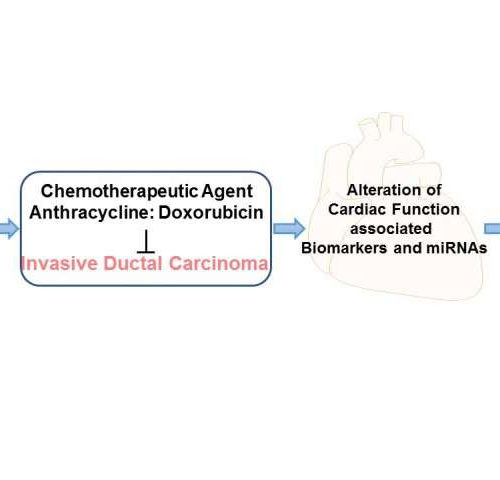by Helmholtz Association of German Research Centres For people with allergies, contact with pollen leads to symptoms such as sneezing, rhinitis and watery eyes. This may sound trivial, but is in fact a complex correlation of physiological processes. As these have not yet been fully understood, we do not know exactly yet how allergies develop...
Tag: <span>biomarkers</span>
Blood test offers early warning of chemotherapy-related heart problems
by Experimental Biology which chemotherapies can cause cardiotoxicity. The research team identified biomarkers and miRNAs that can provide early warning when this process is underway. Credit: Hari Vishal Lakhani, Marshall University Scientists have identified a collection of biomarkers that together signal that a person’s cancer treatment may be harming their heart. After further validation, the...
Higher manganese intake may be tied to lower type 2 diabetes risk
Jung Ho Gong, from Brown University in Providence, Rhode Island, and colleagues evaluated the association between manganese intake and the risk for type 2 diabetes in 84,285 postmenopausal women without a history of diabetes participating in the national Women’s Health Initiative Observational Study (WHI-OS). Results were validated in the 62,338 women who participated in the...
Biomarkers pave way for blood test to predict Parkinson’s progression
By Nick Lavars When Parkinson’s patients are diagnosed with the condition, there are still many unknowns around how the disease will develop and how it will impact their lives. While it is no crystal ball, a new blood test developed at Newcastle University and Cambridge University in the UK is offering hope of better patient...
Step aside, biomarkers. Look to the bank account for early signs of dementia
By ERIC CHESS One crucial missing piece to the devastating puzzle of Alzheimer’s disease and other types of dementia is how to detect them early. Many researchers are hard at work evaluating biomarkers like levels of proteins known as beta-amyloid and tau in cerebrospinal fluid or imaging-detected changes in the brain. There might be another,...
Study identifies ‘clinical risks’ and biomarkers to screen patients with heart condition
Researchers at the University of Birmingham have found two biomarkers that could be used to identify a heart condition known as atrial fibrillation in patients who have three ‘clinical risks’. Atrial fibrillation is the most common heartrhythm disturbance, affecting around 1.6 million people in the UK. Those with atrial fibrillation may be aware of noticeable...
Scientists Develop Cheap, Highly Sensitive and Accurate Test for Biomarkers
Scientists at the Wyss Institute at Harvard University and Boston Children’s Hospital have developed a cheap, sensitive, and highly accurate way of detecting protein biomarkers. The technology may very well revolutionize diagnostics, disease monitoring, and help stop the spread of infectious pathogens. The nanoswitch-linked immunosorbent assay (NLISA) has the potential to be as simple to use...
Breathalyser to see if your sniffling chap has man flu: Device uses sensors to detect the virus
Breathalyser uses sensors to identify biomarkers linked to the flu virus The tool can indicate if the sufferer has flu or just wants a ‘duvet day’ In the future, the tool will help people be diagnosed and treasted earlier The breathalyser could also help prevent flu epidemics from spreading Is this the end of man...




